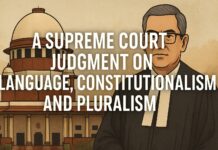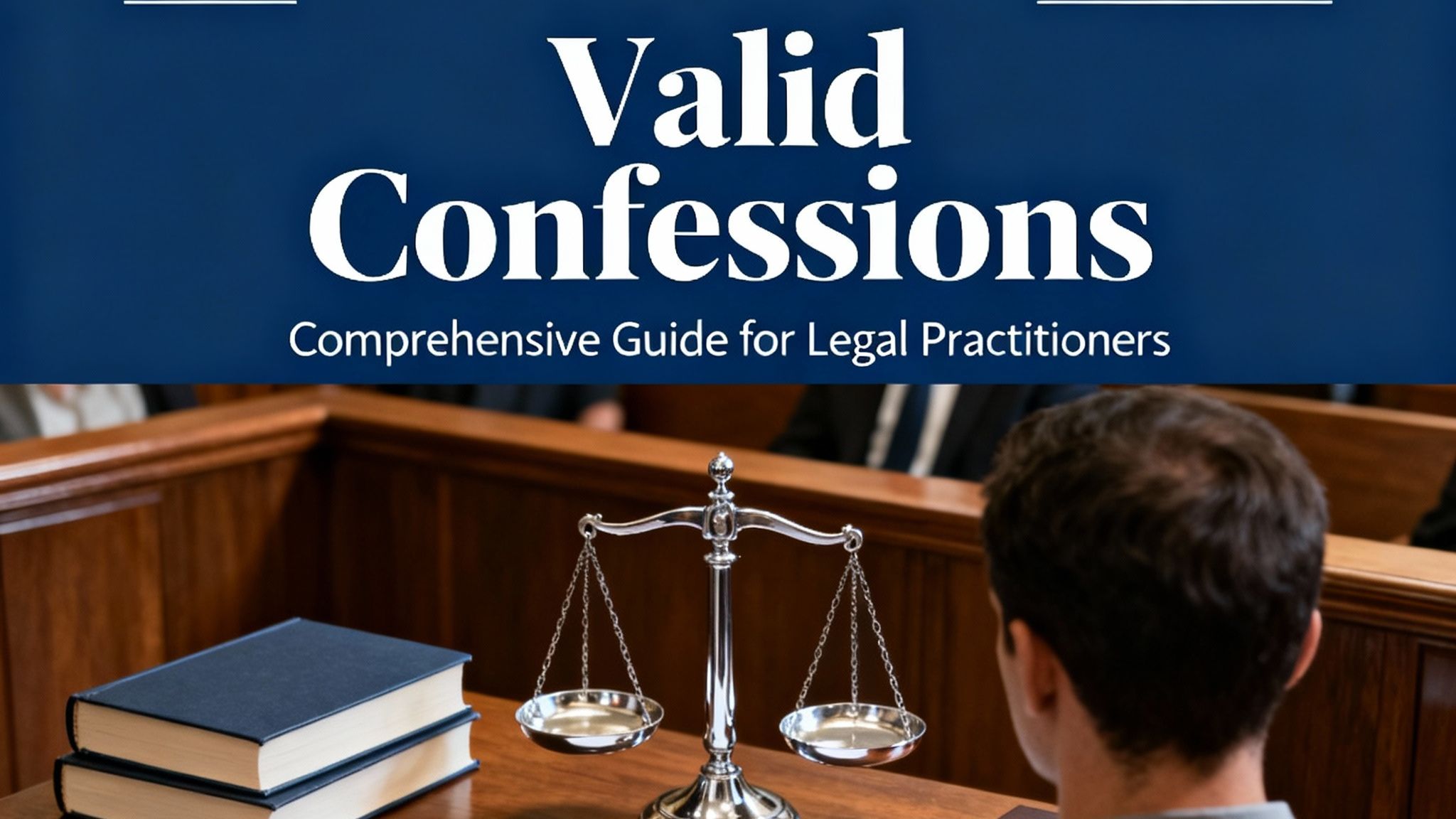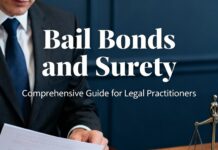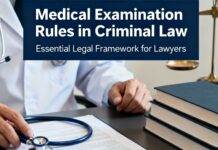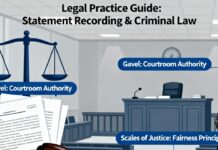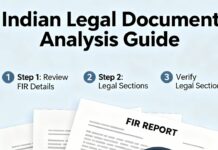Which Confessions Are Valid and How to Use Them: A Comprehensive Guide for Legal Practitioners
The law of confessions occupies a crucial position in criminal jurisprudence, representing one of the most potent forms of evidence while simultaneously requiring careful handling due to the potential for abuse. For legal practitioners, understanding the nuances of confession law is essential not only for effective advocacy but also for upholding the fundamental principles of justice and due process.[1][2][3]
Confessions serve as direct admissions of guilt by accused persons, carrying significant evidentiary weight when properly obtained and presented. However, the legal framework governing confessions reflects a delicate balance between facilitating effective criminal investigations and protecting individual rights against self-incrimination and coercion. This comprehensive guide examines the various types of confessions, their validity requirements, strategic applications, and practical considerations for both prosecution and defense counsel.[4][5][1]
Legal Framework and Constitutional Foundations
The Evidence Act and Confession Law
The Indian Evidence Act, 1872, through Sections 24-30, establishes the fundamental framework for confession admissibility. These provisions reflect the legislature’s careful consideration of the competing interests of criminal justice administration and individual rights protection. The Act does not explicitly define “confession,” leading courts to interpret it as an admission that acknowledges guilt or substantially admits to all facts constituting an offense.[1][2][6][7]
Section 24 establishes the foundational principle that confessions obtained through inducement, threat, or promise are irrelevant when made to persons in authority. This section requires four essential elements: the confession must result from inducement, threat, or promise; such inducement must proceed from a person in authority; it must relate to the charge in question; and it must offer some temporal benefit or disadvantage.[2][6][7][5][1]
Sections 25 and 26 create categorical prohibitions against confessions made to police officers or while in police custody. These provisions reflect legislative recognition of the inherent coercive atmosphere of police custody and the potential for abuse of power. The Supreme Court has consistently emphasized that these prohibitions exist to prevent the extraction of confessions through torture and coercion.[8][9][1][2]
Constitutional Safeguards
Article 20(3) of the Indian Constitution provides that no person accused of an offense shall be compelled to be a witness against himself. This principle of nemo tenetur se ipsum accusare (no one is bound to accuse himself) underpins the entire confession framework and serves as a constitutional check against self-incrimination.[4][5][3]
The constitutional protection extends beyond mere testimonial compulsion to encompass any form of coerced self-incrimination, including through scientific methods such as narco-analysis, polygraph tests, or brain mapping. The Supreme Court has held that these techniques, while useful for investigation, cannot compel involuntary participation and their results are not admissible as evidence.[7][3][10]
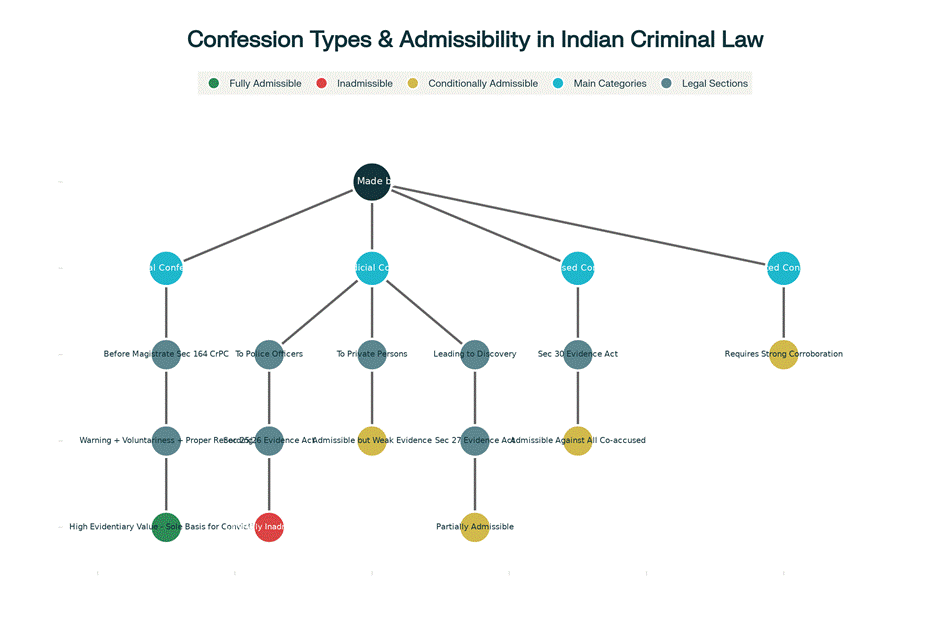
Comprehensive flowchart showing types of confessions and their admissibility under Indian criminal law
Types of Confessions and Their Validity
Judicial Confessions
Judicial confessions represent the highest form of confession evidence, made before magistrates or courts during legal proceedings. These confessions carry substantial evidentiary weight and can serve as the sole basis for conviction when made voluntarily and truthfully.[4][7][11]
Section 164 of the CrPC empowers Metropolitan and Judicial Magistrates to record confessions. The section establishes stringent procedural requirements designed to ensure voluntariness and reliability. The magistrate must explain that the accused is not bound to confess and that any confession may be used as evidence against him.[12][13][14][4]
Essential Requirements for Valid Recording:
- Pre-recording Warning: The magistrate must explain the accused’s right to remain silent and the potential consequences of confession[14][4][12]
- Voluntariness Assessment: The magistrate must question the accused to satisfy himself that the confession is voluntary[4][12][14]
- Proper Recording: The confession must be recorded according to Section 281 and signed by the confessor[12][14][4]
- Memorandum: A formal memorandum certifying voluntariness and proper procedure must be appended[14][4][12]
Time and Custody Considerations: Courts have established that accused persons should preferably be kept in judicial custody for at least 24 hours before confession recording to eliminate police influence. This cooling-off period helps ensure that the confession is free from immediate coercive effects.[15][13][4]
Extra-Judicial Confessions
Extra-judicial confessions encompass all confessions made outside formal judicial proceedings. While admissible, they require careful scrutiny and typically need corroboration due to their inherently weaker evidentiary value.[2][7][16]
Confessions to Private Persons: When made to private individuals, extra-judicial confessions are admissible but considered weak evidence requiring independent corroboration. The Supreme Court has consistently held that such confessions must be scrutinized for surrounding circumstances that might indicate involuntariness or fabrication.[7][16][17][2]
Recent judicial developments have clarified important distinctions regarding the status of persons receiving confessions. In Sadashiv Dondiram Patil v. State of Maharashtra (2025), the Supreme Court held that a Village Police Patil, not being a formal police officer, could receive extra-judicial confessions that would be admissible.[16][17]
Self-Incriminating Statements: Even statements made to oneself can constitute confessions. In Sahoo v. State of U.P., the Supreme Court held that self-incriminating statements overheard by others are relevant and admissible.[1][6][7]
Confessions to Police Officers
Sections 25 and 26 create an absolute prohibition against confessions made to police officers or while in police custody. This rule exists to prevent torture and coercion, recognizing the inherent power imbalance in police-accused interactions.[1][2][8][9][18]
Recent Judicial Clarifications: The Supreme Court in recent judgments has emphasized that this prohibition is complete and that even attempting to prove such confessions violates the Evidence Act. In a 2024 case, the Court severely criticized trial courts for allowing prosecution witnesses to testify about inadmissible police confessions.[18][19]
Section 27 Exception – Discovery Confessions
Section 27 provides a limited exception to the general prohibition against police confessions. It permits admission of statements made to police officers, but only the portion that distinctly relates to the discovery of facts.[1][2][18][19]
Key Principles for Section 27 Application:
- Only the discovery portion is admissible, not the confessional aspects[18][19]
- There must be a direct causal link between the statement and the discovery[19][18]
- The discovered fact must be one that only the accused could have known[2][19]
- The confession itself remains inadmissible; only the factual discovery is permitted[18][19]
Co-Accused Confessions
Section 30 allows confessions by co-accused to be considered against all persons jointly charged with the same offense. However, such confessions cannot serve as substantive evidence against co-accused and are primarily used for lending assurance to other evidence.[1][6][20][10]
Limitations on Co-Accused Confessions: The Supreme Court has held that convictions cannot be based solely on co-accused confessions, particularly under special statutes like the NDPS Act. Such confessions require strong corroboration from independent evidence.[20][10]
Retracted Confessions: Challenges and Opportunities
Legal Principles Governing Retraction
Retracted confessions present complex evidentiary challenges, requiring courts to apply heightened scrutiny while remaining open to genuine admissions of guilt. The law recognizes that while initial confessions may be voluntary and true, subsequent retraction might result from various factors including fear, legal advice, or realization of consequences.[21][22][23]
The Double Test Standard: Courts apply a two-pronged analysis established in Shankaria v. State of Rajasthan:[22]
- Voluntariness Test: Was the confession made voluntarily without inducement, threat, or promise?
- Truthfulness Test: If voluntary, is the confession true and trustworthy in light of other evidence?
Corroboration Requirements
Independent Corroboration: While no statutory requirement mandates corroboration of retracted confessions, judicial prudence demands independent evidence supporting the confession’s material particulars. The Supreme Court has consistently held that retracted confessions, being weak evidence, should not form the sole basis for conviction without corroboration.[21][22][24][25]
Recent Judicial Guidance: In 2024, the Supreme Court clarified that circumstances corroborating retracted confessions must directly implicate the accused rather than merely support general prosecution theory. This represents a significant tightening of corroboration standards.[24]
Types of Acceptable Corroboration:
- Material Evidence: Physical evidence supporting facts admitted in confession
- Witness Testimony: Independent witnesses corroborating confessional facts
- Circumstantial Evidence: Surrounding circumstances consistent with confession
- Discovery Evidence: Facts discovered based on confessional information
Strategic Considerations for Retracted Confessions
For Defense Counsel: Focus on challenging the voluntariness of the original confession and providing credible explanations for retraction. Highlight any evidence of coercion, improper procedure, or changed circumstances that might justify withdrawal.[26][21][22][23]
For Prosecution: Establish strong independent evidence supporting confessional facts and demonstrate that reasons for retraction are false or motivated by collateral considerations. Present evidence showing the confession’s consistency with established facts.[21][22][23]
Strategic Applications for Legal Practitioners
For Defense Counsel
Challenging Confession Validity: Defense strategies should focus on procedural violations, voluntariness issues, and constitutional challenges. Effective defense requires thorough investigation of recording procedures, custody conditions, and the accused’s mental state during confession.[26][27][28]
Common Defense Challenges:
- Procedural Violations: Non-compliance with Section 164 requirements, improper warnings, inadequate voluntariness assessment[4][29][28]
- Coercion Evidence: Physical or psychological pressure, extended interrogation, threats to family members[30][31][26]
- Mental State Issues: Intoxication, mental illness, fatigue, or other factors affecting capacity[28][26][30]
- Chain of Custody: Gaps in recording, unsigned documents, procedural irregularities[29][27]
Effective Cross-Examination Strategies: Challenge the recording magistrate on procedural compliance, question investigating officers about custody conditions, and present medical or psychiatric evidence regarding the accused’s mental state.[26][28]
For Prosecution Counsel
Ensuring Confession Admissibility: Prosecution must meticulously follow procedural requirements and maintain detailed records of confession circumstances. This includes ensuring proper warnings, cooling-off periods, and compliance with all statutory requirements.[4][12][14][32]
Building Strong Corroborative Evidence: Particularly for extra-judicial and retracted confessions, prosecution must present independent evidence supporting confessional facts. This evidence should directly relate to the confession’s material particulars rather than general case circumstances.[21][24][16][17]
Responding to Defense Challenges: Anticipate common defense arguments regarding voluntariness, procedure, and mental state. Prepare detailed evidence regarding custody conditions, recording procedures, and the accused’s awareness of rights.[28][4][21]
Contemporary Challenges and Developments
Technological Developments
Audio-Video Recording: Recent amendments permit audio-video recording of confessions under Section 164, adding another layer of authenticity. While beneficial for ensuring accuracy, this development also creates new challenges regarding equipment availability and technical compliance.[4][13][14]
Scientific Investigation Methods: Courts continue to grapple with the admissibility of evidence derived from scientific methods while maintaining constitutional protections. While such methods can aid investigation, their results cannot be admitted as evidence without voluntary participation.[7][3][10]
Emerging Judicial Trends
Stricter Corroboration Standards: Recent Supreme Court decisions indicate increasingly stringent requirements for corroboration of weak confession evidence. Courts are demanding more direct and specific corroborative evidence rather than general supportive circumstances.[24][17]
Enhanced Procedural Scrutiny: Higher courts are paying closer attention to procedural compliance in confession recording, with several recent decisions excluding confessions due to technical violations. This trend emphasizes the importance of meticulous adherence to statutory requirements.[4][29][18]
Constitutional Emphasis: Growing emphasis on constitutional protections against self-incrimination, particularly in cases involving vulnerable accused persons such as juveniles or mentally ill individuals.[7][3][28]
Practical Recommendations and Best Practices
For Magistrates Recording Confessions
Pre-Recording Preparation: Ensure adequate time for cooling-off periods, verify the accused’s mental capacity, and confirm understanding of the warning’s implications. Maintain detailed records of all procedural steps and decisions.[4][15][12][13][14]
During Recording: Ask probing questions to assess voluntariness, ensure the accused’s language is used where possible, and maintain comprehensive records including questions asked and responses received. Pay particular attention to any signs of coercion or mental distress.[15][12][13][4]
Post-Recording Requirements: Complete all memoranda requirements, ensure proper signatures, and forward records promptly to the trial magistrate. Maintain copies and be prepared to testify regarding the recording process.[12][29][14][32][4]
For Investigating Officers
Custody Management: Ensure clear documentation of custody periods, avoid any coercive atmosphere, and respect the accused’s rights throughout detention. Be particularly careful about timing between arrest and confession to avoid challenges regarding police influence.[4][15][13]
Evidence Preservation: Maintain meticulous records of all evidence, particularly in Section 27 cases where discovery facts are crucial. Document the exact sequence of events leading from statement to discovery.[18][19]
Procedural Compliance: Avoid any attempt to record or rely upon inadmissible police confessions, focusing instead on admissible evidence types. Ensure understanding of the limitations imposed by Sections 25 and 26.[2][8][9][18]
For Trial Courts
Admissibility Determinations: Apply rigorous standards for confession admissibility, particularly for retracted confessions requiring enhanced scrutiny. Consider all circumstances surrounding confession making and subsequent retraction.[21][22][24]
Corroboration Assessment: Demand specific corroboration directly relating to confessional facts rather than accepting general supportive evidence. Evaluate the quality and reliability of corroborative evidence carefully.[24][25][21]
Constitutional Awareness: Remain cognizant of constitutional protections while evaluating confession evidence, ensuring that fundamental rights are not compromised in the pursuit of criminal justice.[7][3][28]
Future Directions and Recommendations
Legislative Considerations
Uniform Standards: Consider developing uniform standards for confession recording across all courts to ensure consistency and reduce procedural challenges. This could include standardized forms, timelines, and training requirements.[21][13]
Technology Integration: Develop comprehensive guidelines for audio-video recording, including equipment standards, storage requirements, and authentication procedures.[13][14]
Protection Enhancement: Strengthen protections for vulnerable populations including juveniles, mentally ill persons, and those with language barriers.[7][28][13]
Judicial Training
Specialized Training: Implement specialized training programs for magistrates on confession recording, emphasizing both legal requirements and practical challenges.[13][32]
Regular Updates: Establish systems for regular updates on evolving jurisprudence and best practices in confession law.[21][24][28]
Conclusion
The law of confessions represents one of criminal law’s most complex and important areas, requiring practitioners to master both substantive legal principles and practical application techniques. Success in confession-related cases depends upon thorough understanding of statutory requirements, constitutional protections, and evolving judicial interpretations.[1][2][21]
For defense counsel, effective representation requires aggressive challenge of procedural violations while presenting compelling evidence regarding involuntariness or fabrication. Prosecution counsel must ensure meticulous compliance with all requirements while building strong corroborative cases that can withstand rigorous judicial scrutiny.[26][21][28]
The continuing evolution of confession law, particularly regarding technological developments and enhanced constitutional protections, demands ongoing professional education and adaptation. Practitioners who stay current with these developments while maintaining focus on fundamental principles will be best positioned to serve their clients effectively.[7][21][24]
As the criminal justice system continues to evolve, the law of confessions will undoubtedly face new challenges and developments. However, the fundamental principles of voluntariness, constitutional protection, and procedural compliance will remain central to effective practice in this critical area of criminal law.[21][28][1][7]
The successful use of confession evidence requires not only technical legal knowledge but also practical wisdom regarding investigation techniques, human psychology, and the broader goals of criminal justice. Practitioners who develop expertise in these areas while maintaining ethical standards will contribute to both effective advocacy and the fair administration of justice.[4][28][7][21]
- https://lawbhoomi.com/admissions-and-confessions-in-evidence-act/
- https://restthecase.com/knowledge-bank/confession-in-evidence-act
- https://www.drishtijudiciary.com/to-the-point/bharatiya-sakshya-adhiniyam-&-indian-evidence-act/confession-under-bharatiya-sakshya-adhiniyam-2023-bsa
- https://blog.ipleaders.in/recording-of-statement-under-section-164-crpc/
- https://www.granthaalayahpublication.org/Arts-Journal/ShodhKosh/article/download/2342/2086/17782
- https://blog.ipleaders.in/confessions-under-the-indian-evidence-act/
- https://bnblegal.com/article/types-of-confession-confession-under-indian-evidence-act/
- http://student.manupatra.com/Academic/Abk/Law-of-Evidence/Chapter3.htm
- https://blog.ipleaders.in/important-pointers-you-must-know-about-admissibility-of-confessions/
- https://narcoordindia.gov.in/narcoordindia/judgements.php?page=3
- https://cdnbbsr.s3waas.gov.in/s3ec03333cb763facc6ce398ff83845f22/uploads/2023/12/2023120145.pdf
- https://devgan.in/crpc/section/164/
- https://thelaw.institute/criminal-justice-processes/magistrates-recording-witness-statements-crpc/
- https://lawgist.in/code-of-criminal-procedure/164
- https://highcourtchd.gov.in/sub_pages/left_menu/Rules_orders/high_court_rules/vol-III-pdf/chap13.pdf
- https://www.alec.co.in/show-blog-page/village-police-patil-not-police-officer-confession-to-him-admissible-as-extra-judicial-confession-supreme-court
- https://www.scconline.com/blog/post/2025/02/07/extra-judicial-confession-lacked-credibility-sc-acquits-murder-convict/
- https://www.livelaw.in/supreme-court/confession-of-accused-cant-be-proved-under-s27-evidence-act-only-statements-relating-to-discovery-of-facts-admissible-supreme-court-276133
- https://api.sci.gov.in/supremecourt/2024/40496/40496_2024_14_1501_59232_Judgement_07-Feb-2025.pdf
- https://www.casemine.com/commentary/in/admissibility-and-corroboration-of-retracted-confessions-under-section-30-of-the-indian-evidence-act:-insights-from-ram-prakash-v.-state-of-punjab/view
- https://bhattandjoshiassociates.com/retraction-of-statements-and-confessions/
- https://www.juscorpus.com/wp-content/uploads/2023/10/29.-Dimpal-Khotele.pdf
- https://www.brillopedia.net/_files/ugd/134683_56c3cca76f0a4f9a82651a8b100c9d13.pdf?index=true
- https://www.scconline.com/blog/post/2024/12/08/circumstances-corroborating-retracted-confession-must-implicate-accused-not-sufficient-for-corroboration/
- https://www.advocatekhoj.com/library/lawreports/reformofjudicial/133.php?Title=Reform+of+Judicial+Administration&STitle=Corroboration+of+retracted+confessions
- https://jamespublishing.com/2013/how-to-overcome-a-criminal-confession/
- https://thefernandezfirm.com/challenge-evidencein-a-criminal-case/
- https://www.olliers.com/news/excluding-confessions-from-evidence/
- https://www.scconline.com/blog/post/2024/06/06/confessional-statement-not-signed-or-proved-by-magistrate-who-recorded-it-cannot-be-treated-as-true-u-s-164-crpc-gauhc-scc-times/
- https://www.federaldefensenc.com/5-tactics-police-use-to-get-a-confession/
- https://rdslaw.com/compel-criminal-confessions/
- https://restthecase.com/knowledge-bank/crpc/section-164
- https://www.delhihighcourt.nic.in/files/2024-04/courtrulefile_bhx4lv6d.pdf
- https://en.wikipedia.org/wiki/Confession_(law)
- https://www.lawfinderlive.com/Articles-1/Article42.htm
- https://www.indiacode.nic.in/bitstream/123456789/15272/1/the_code_of_criminal_procedure,_1973.pdf
- https://www.scribd.com/document/487984124/INDIAN-EVIDENCE-ACT-1872-NOTES
- https://thelaw.institute/criminal-justice-processes/criminal-law-confessions-procedures-evidence/
- https://scholarlycommons.law.northwestern.edu/cgi/viewcontent.cgi?article=3642&context=jclc
- https://www.indiacode.nic.in/bitstream/123456789/15351/1/iea_1872.pdf
- https://www.tnsja.tn.gov.in/article/ARC_us_164.pdf
- https://papers.ssrn.com/sol3/Delivery.cfm/5217635.pdf?abstractid=5217635&mirid=1
- https://thelaw.institute/criminal-justice-processes/crucial-role-witness-statements-section-164-crpc/
- https://toplawyer.law/criminal-defense-strategies/
- https://www.rksassociate.com/section-164-of-cr-p-c/
- https://lawnotes.co/tag/define-retracted-confession/
- https://www.nacdl.org/Media/Defending-the-Interrogation-Case
- https://www.lexisnexis.co.uk/legal/guidance/confessions
- https://www.scobserver.in/supreme-court-observer-law-reports-scolr/narayan-yadav-v-state-of-chhattisgarh-validity-of-confessional-fir-as-evidence/
- https://www.scribd.com/document/544258084/SECTION-164-364-533
- https://www.livelaw.in/know-the-law/all-you-want-to-know-about-recording-of-confessions-section-164-crpc-part-iv-144614
- https://papers.ssrn.com/sol3/papers.cfm?abstract_id=5217635
- https://onlinelibrary.wiley.com/doi/10.1111/1468-2230.12571
- https://www.scobserver.in/supreme-court-observer-law-reports-scolr/corroboration-of-extra-judicial-confession-ramu-appa-mahapatar-v-state-of-maharashtra/
- https://ppl-ai-code-interpreter-files.s3.amazonaws.com/web/direct-files/1e778bee3c360c92c3993236fecaafe0/8b6efec1-139c-44e5-a713-bc222ee9f316/9208fc74.csv







